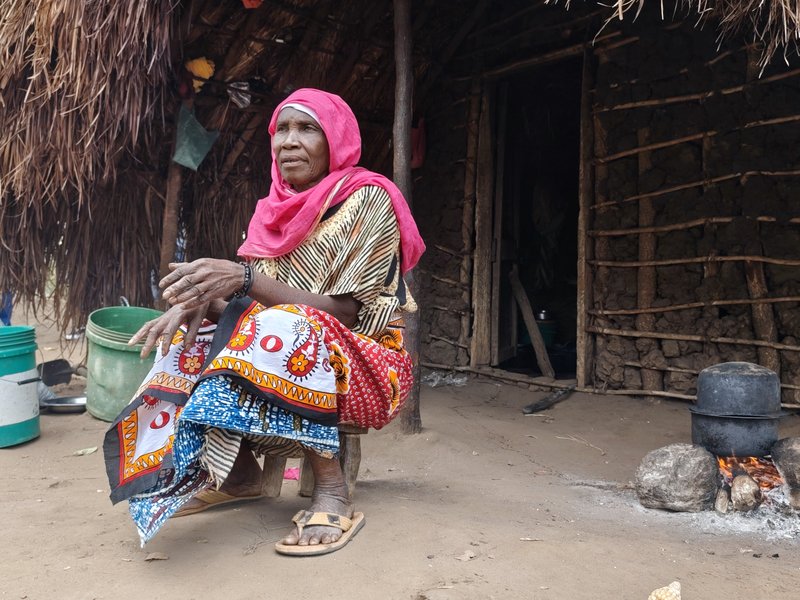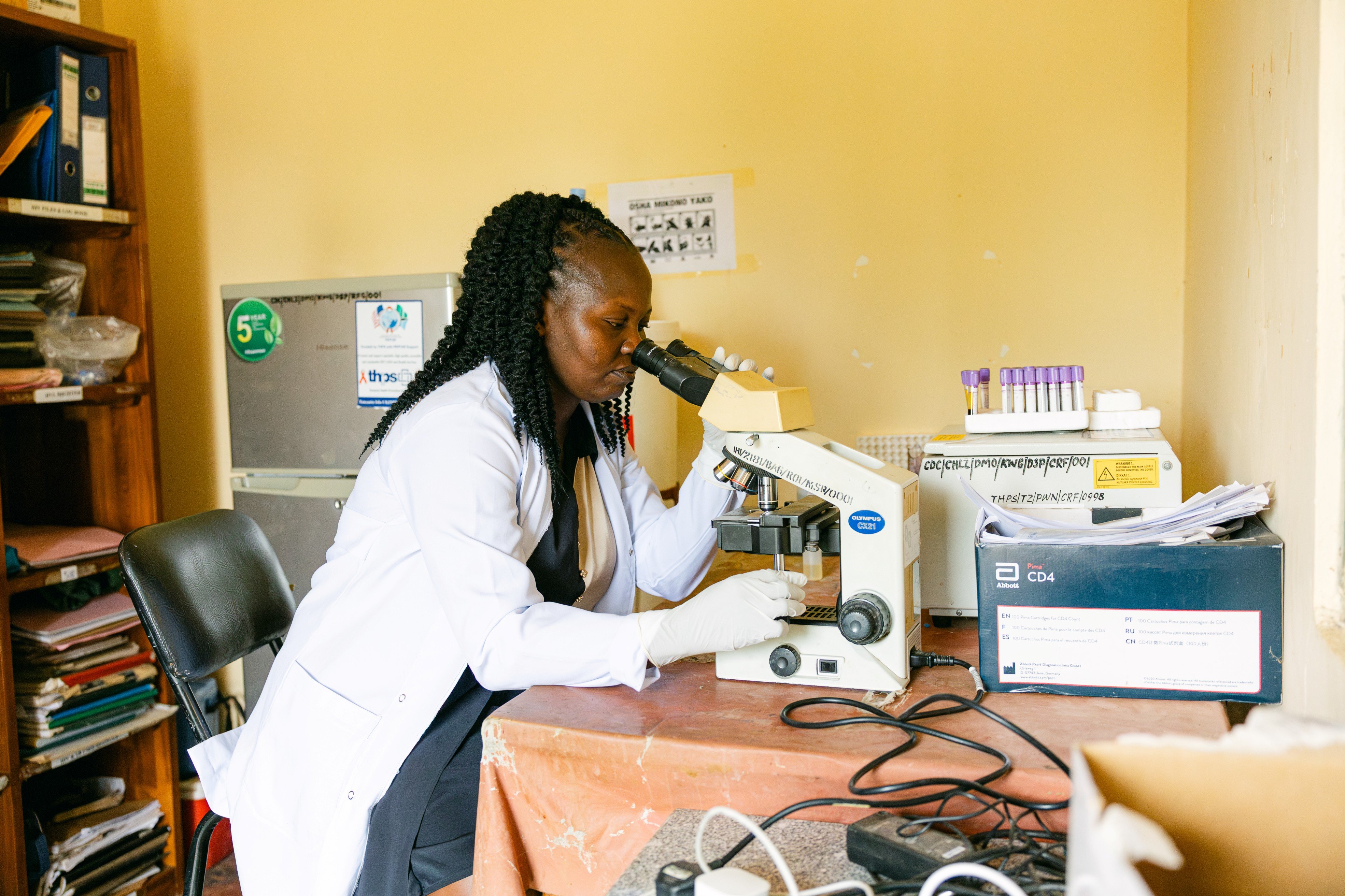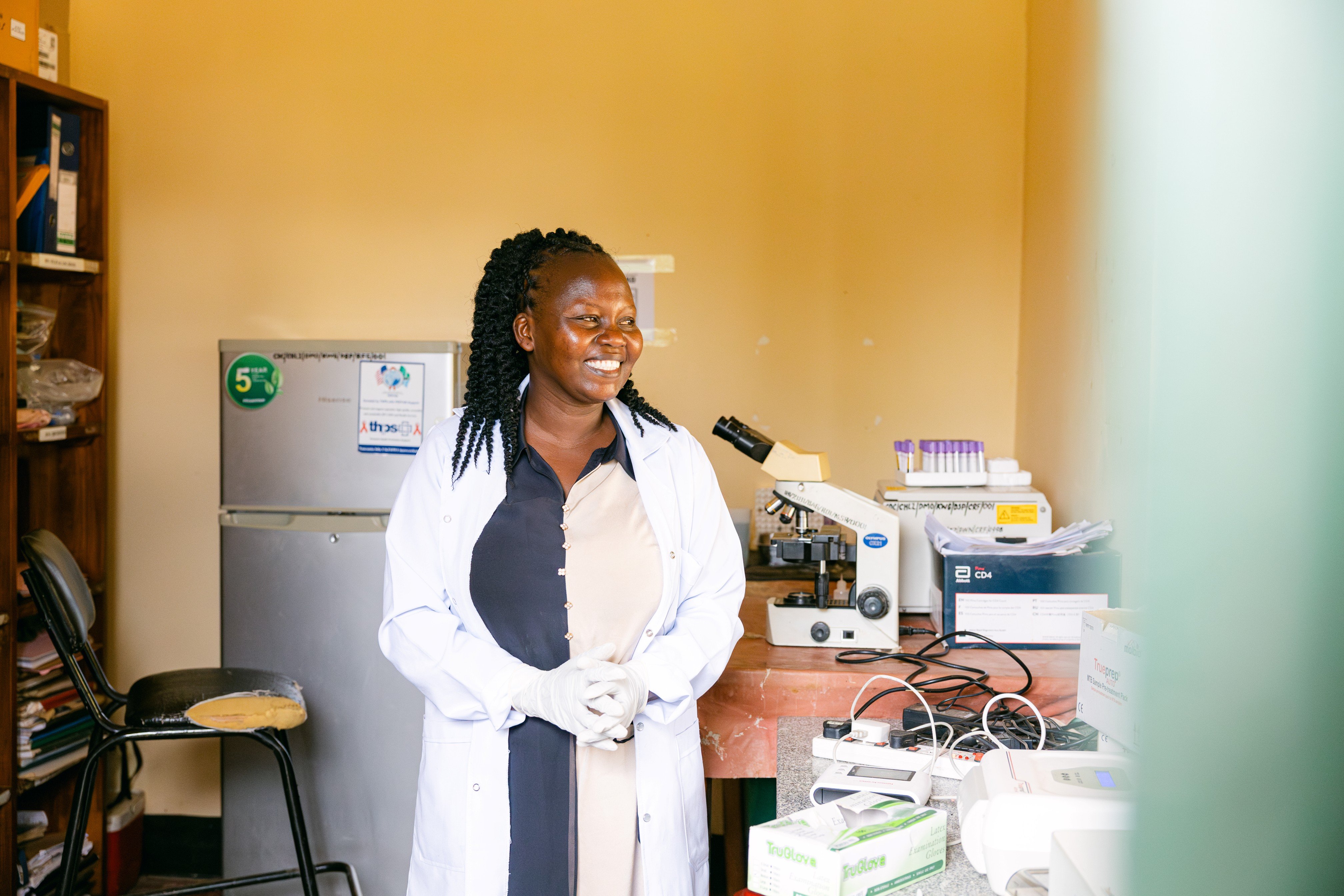
Mwanaidi at her home in Chalinze, Pwani Region, Tanzania
James Ochweri/Uniting to Combat NTDs
For over two years, Mwanaidi lived in pain and darkness. Once a trusted midwife to countless women, she could no longer see the moonlight that once lit the pathways as she made her way to deliver babies at night. Her story is now one of thousands transformed by Tanzania’s commitment to eliminating trachoma.
A Midwife in the Dark
Trachoma is a contagious eye infection spread by flies and unclean hands. Repeated infections can cause eyelashes to turn inward, painfully scratching the eye and potentially leading to blindness. It thrives in communities lacking clean water and sanitation, limiting education and preventing people from working or caring for their families.
Significant progress has been made in the fight against trachoma. The number of people requiring antibiotic treatment in Africa more than halved between 2014 and 2024, from 189 million to 93 million. Once highly prevalent in Tanzania, only 7 districts are expected to remain endemic in 2025, with 744,148 people still at risk in 2024. A Life-Changing Surgery
The efforts of the Government of Tanzania towards the treatment and elimination of trachoma in the country are bearing fruit for its citizenry. Mwanaidi, a resident of Mbwewe village in Tanzania’s Pwani region, was living with a lot of pain in her eyes. She had looked for relief from the pain with herbal treatments and traditional medicine, but nothing was working.
"I couldn't see at all, and I was feeling so much pain,” she said.
Mwanaidi, a farmer, was also working as a midwife/traditional birth attendant in the arid and sparsely populated area, and the women had come to rely on her services – often calling her late in the night to assist. Before her sight was impacted, Mwanaidi could easily make her way to the various homesteads by moonlight alone. But when the pain started, her family grew superstitious, saying her work as a midwife was the cause. Mwanaidi did not believe in their superstition, and she continued to try and get a lasting solution to her pain.
In late 2024, Mwanaidi heard an announcement about eye treatment services, and her family urged her to go seek the treatment. Mwanaidi got screened and diagnosed with trachomatous trichiasis, a severe and sight-threatening complication of trachoma – and was able to get surgery from Dr. Margaret Mumbua Muthoka, a clinical officer and the only trained trachoma surgeon in Chalinze district where Mbwewe falls. The difference was immediate for Mwanaidi once the bandages were removed post surgery. "I was so happy. I could walk by myself and see even the moon at night!" she said.

Sam Vox/Uniting to Combat NTDs
Scaling Up Success
Within months of the surgery, Mwanaidi was fully healed and back to her farming activities. Tanzania has effectively implemented a successful SAFE (Surgery, Antibiotics, Facial cleanliness, and Environmental impacts) strategy since 1999 in endemic communities. Tanzania is succeeding at trachoma elimination, with only seven districts having a prevalence rate above 5% in 2025 from an initial 84 districts in 2004. This success is attributed to the dedication of health workers, case finders, and village advocates in monitoring, advocacy, and sensitization on behavioral change. The NTD programme also collaborates with the WASH (Water, Sanitation and Hygiene) sector and Vector Control Unit to strengthen health systems and enhance elimination efforts efficiently.
The Frontline Challenge
Dr.Margaret Muthoka is a clinical officer who has been working for the past seven years in Chalinze, and specialised in trachoma surgery because there was no other specialist in the district, yet the people were suffering from the disease.
"I could give you many good stories of seeing trachoma patients healed and getting back to their normal lives. I am happy to see that change in their lives." she says.
Her work is not without challenges, however, with resource limitations, misinformation and the long distances that healthcare workers and patients have to travel being her topmost. "This district is very large. We are only two clinical officers and I'm the only trachoma surgeon. Most patients don't come to us because they don't know they have trachoma, but we can't get to them because our resources are constrained. Nevertheless, we try and reach as many as we can,” she adds
To tackle challenges faced by frontline health workers, such as misleading information and limited resources, the Ministry of Health's NTD program uses a range of communication approaches. They conduct targeted media campaigns and place advertisements before mass drug administration events to ensure as many people attend them as possible. They also operate a toll-free hotline, allowing communities to call in with any questions they might have.
To ensure that the progress made in eliminating NTDs continues, especially as donor funding decreases, the programme is working to integrate NTD efforts into the broader health sector's coordination structures. This integration will help ensure that existing funds can effectively support NTD elimination. Furthermore, they are actively working with district councils to increase local funding for NTD interventions, aiming to reach up to 60% by 2026. These innovative ways of securing funding will be crucial in helping Tanzania close the gap towards eliminating NTDs and ensuring the program's long-term success.

Sam Vox/Uniting to Combat NTDs
The Role of Partnerships
Dr. Muthoka is grateful to the partners who give the medicines that are used to treat and cure trachoma. She said "The antibiotics we use are a crucial part of our effort to eliminate trachoma in this district. It's important that the partners keep holding our hands and support us so that we can bring an end to these neglected tropical diseases and improve the livelihoods of our people." She hopes that by 2030, Tanzania will be able to eliminate trachoma fully. "I hope that the government and partners can continue to give us the resources to be able to go far and wide with our outreach and get treatment to those who need it and prevent blindness," Dr. Muthoka stated.
Tanzania’s progress is proof that eliminating trachoma is possible. But continued investment in outreach, training, and medicine is essential. Every restored sight is a restored life, one that can earn, learn, and thrive. With sustained support, Tanzania can continue being a beacon of hope for millions still at risk.